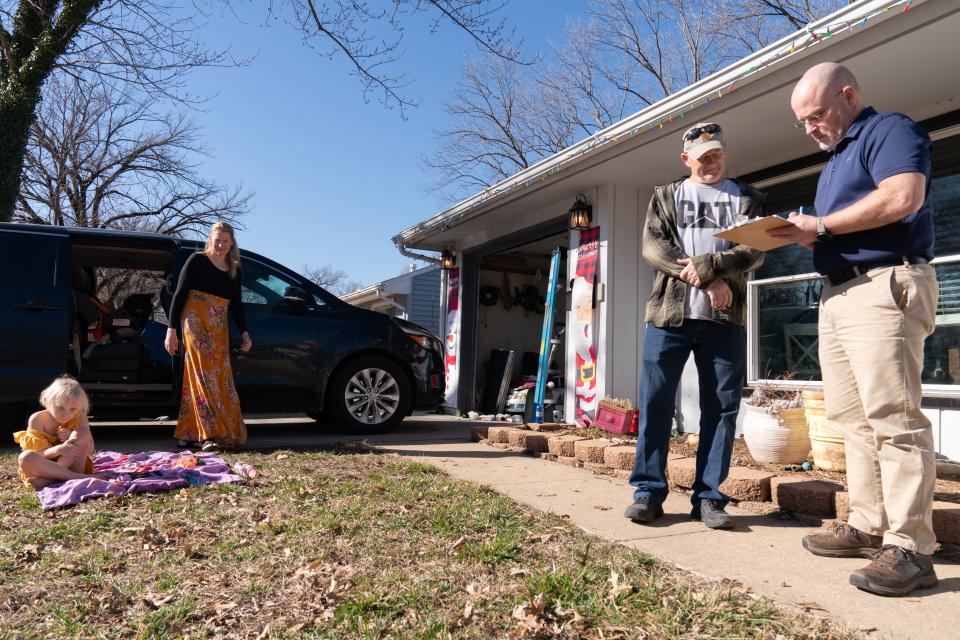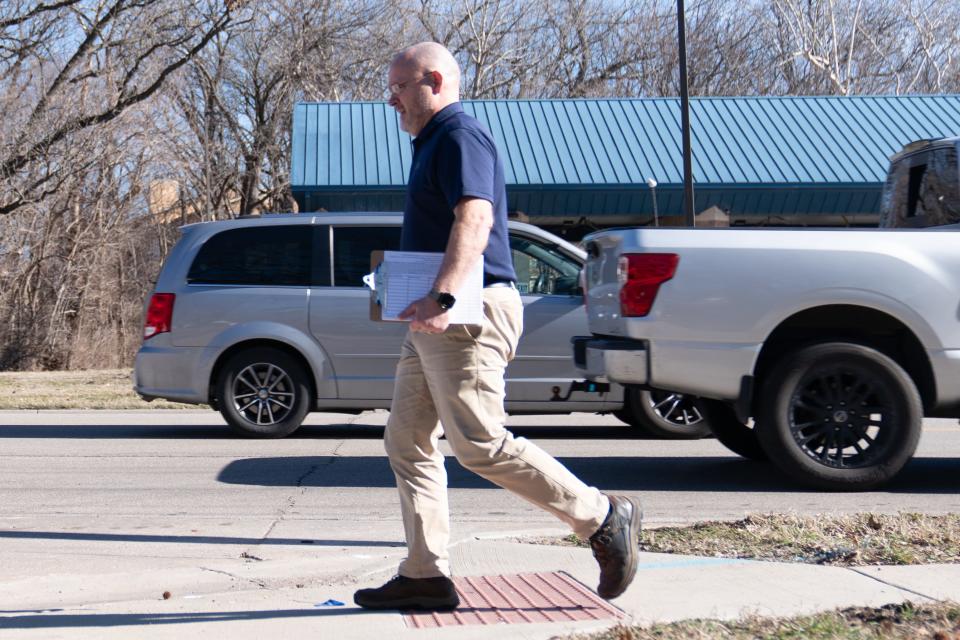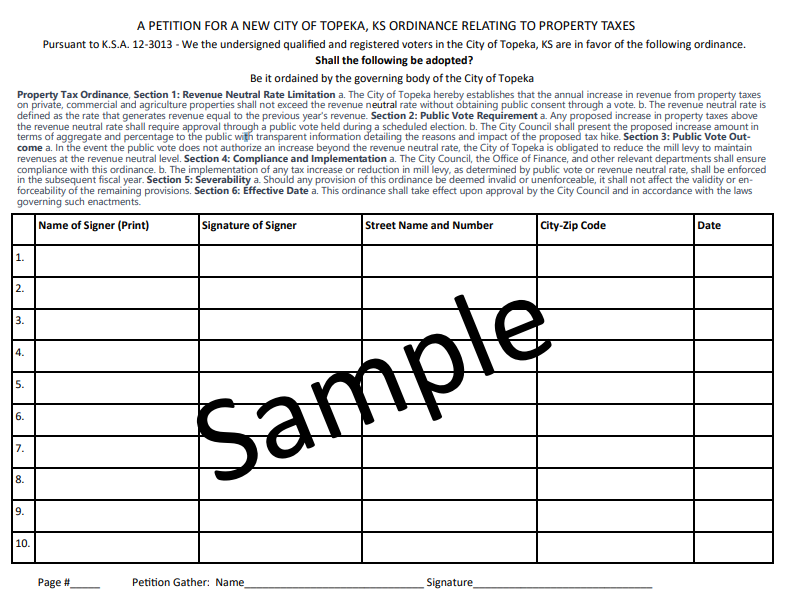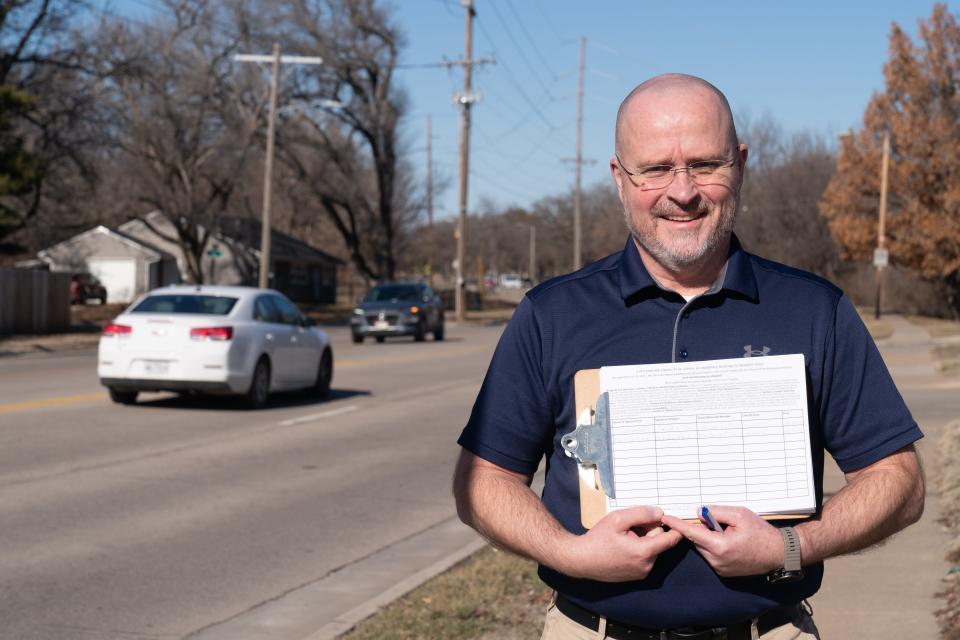Organizer says Topeka petition seeks to demand 'a public vote before they raise our taxes'
Keeping Topeka's city government from raising property taxes without a public vote is the aim of a recently initiated petition drive.
The petition calls for the passage of a proposed ordinance that would ban the city from collecting more property taxes in any given year than it collected the previous year without a public vote, said Topekan Earl McIntosh, the petition drive's leader.
"We want a public vote before they raise our property taxes," McIntosh told The Capital-Journal last week. "It's that simple."

What changes are being sought with Topeka petition?
If the proposed ordinance were passed, the city would be banned from bringing in more property tax revenue than the "revenue neutral" amount it brought in the previous year unless voters approved such an increase in a ballot question election, McIntosh said.
Organizers will need to collect nearly 3,000 signatures for the petition to be validated, he said.
The proposed ordinance's passage would prevent the city for 10 years from raising property taxes above the revenue neutral amount without the public's voting to do that in a scheduled election, McIntosh said.
The proposed ordinance also outlines the steps the city would need to take if it wanted to raise taxes.
"The City Council shall present the proposed increase amount in terms of aggregate and percentage to the public with transparent information detailing the reasons and impact of the proposed tax hike," the proposal says. "In the event the public vote does not authorize an increase beyond the revenue neutral rate, the City of Topeka is obligated to reduce the mill levy to maintain revenues at the revenue neutral level."
McIntosh said he'd like to see the same type of requirement imposed upon the government of Shawnee County, but apparently current law doesn't allow for that.

What authorizes Topeka petition carriers to do what they're doing?
The petition drive is being carried out following the rules spelled out by KSA 12-3013, McIntosh said.
KSA 12-3013 outlines the state's process for initiative and referendum, said city attorney Amanda Stanley.
"The initiative process allows voters to propose, or initiate, a local law or action by filing a petition signed by a specified number of voters," Stanley said.
KSA 12-3013 says, "Except as provided in subsection (e), a proposed ordinance may be submitted to the governing body of any city accompanied by a petition as provided by this section. Such petition shall be signed by electors equal in number to at least 25% in cities of the first class, and 40% in cities of the second and third class, of the electors who voted at the last preceding regular city election as shown by the poll books and shall contain a request that the governing body pass the ordinance or submit the same to a vote of the electors."

How many signatures are needed?
Topeka is a city of the first class. About 11,000 people voted in last year's city's election, with 25% of that — or almost 3,000 signatures — consequently being required for the petition to be ruled valid, McIntosh said.
Petition carriers intend to collect 4,000 or 5,000 signatures, he said.
Participants collected "well over 500 signatures" in the drive's first six days, McIntosh said.
He said he'd been going door to door and had been "shocked" and "stunned" to see how upset homeowners feel about how much they have to pay in property taxes.
He said he wanted to make sure Topeka cityofficials hears his group's message loud and clear.
"In my opinion, this is the No. 1 biggest issue in Topeka," he said.
McIntosh said he still needs people to collect signatures. He asked anyone interested in doing that, or in signing the petition, to stop by during regular business hours at his office at 2816 S.W. Gage Blvd. McIntosh is self-employed. He and his wife have lived in Topeka for more than 30 years.

What happens if the petition gets enough signatures?
If the petition were submitted to city clerk Brenda Younger's office and found to have enough valid signatures of registered Topeka voters, the mayor and city council would have 20 days to either pass it or vote to call a special election — unless a regular city election is scheduled within 90 days, Stanley said.
But even a proposed ordinance that has a sufficient number of signatures and has been deemed a valid petition is required to be evaluated for any potential legal defects, she said.
If the petition contained a legal defect or addressed "invalid subject matter," the mayor and council could choose to challenge it through the courts, Stanley said.
The mayor and council could also refuse to submit the question for election if it violated the constitution, she said.
Might this proposal face a legal challenge?
Courts have "repeatedly" struck down petitions that violate subsection (e) of KSA 12-3013, Stanley said.
That says, "The initiative and referendum law does not apply to administrative ordinances; ordinances relating to public improvements to be paid in whole or in part by special assessments; and ordinances subject to referendums under other statutes."
McIntosh said petition drive participants were "keeping their cards to themselves" about what steps they might take if Topeka city officials contend their petition violates subsection (e).
Contact Tim Hrenchir at threnchir@gannett.com or 785-213-5934.
This article originally appeared on Topeka Capital-Journal: Petition drive aims to keep city of Topeka from raising property taxes

